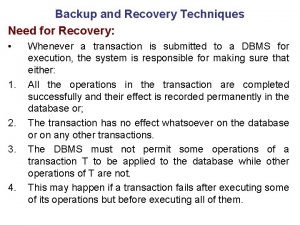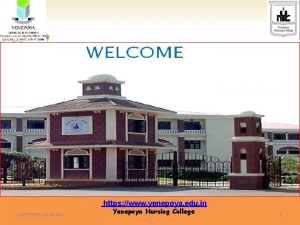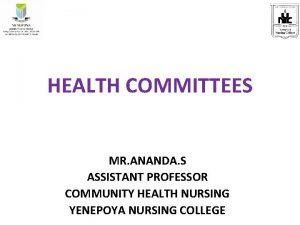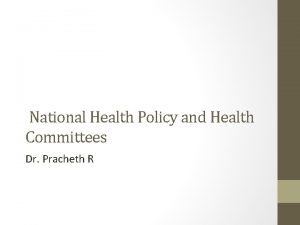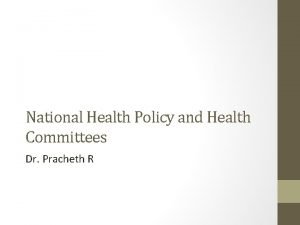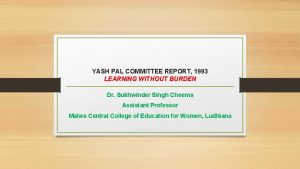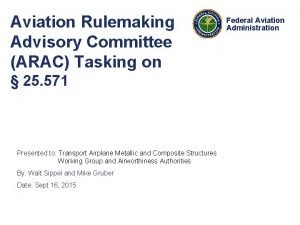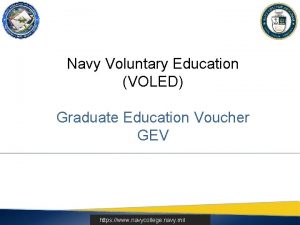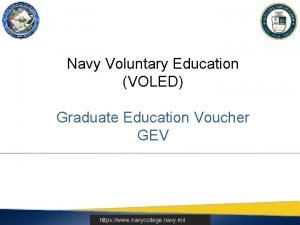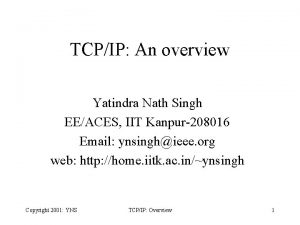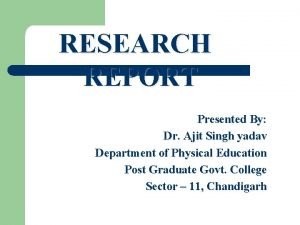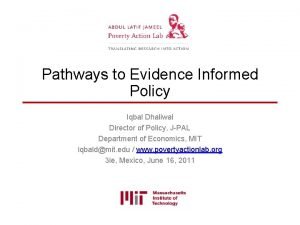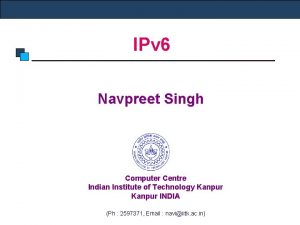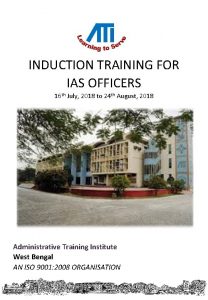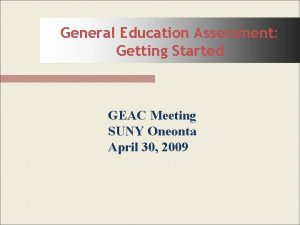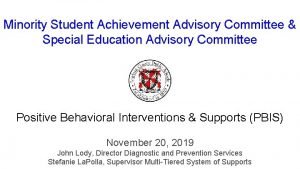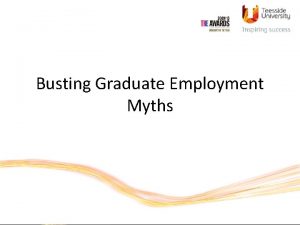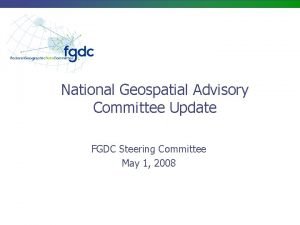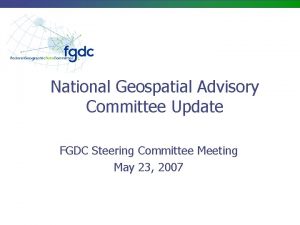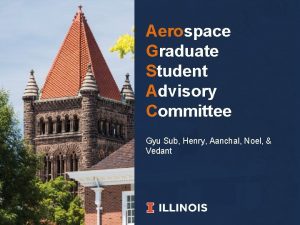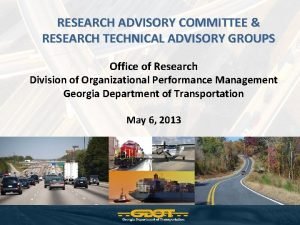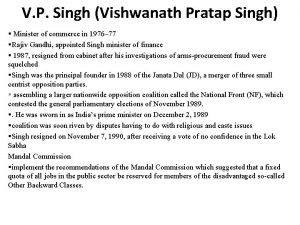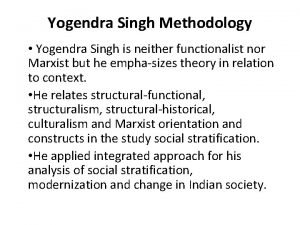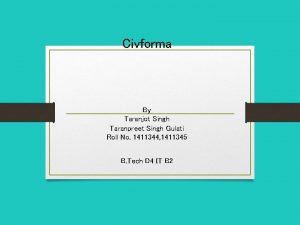Graduate Education Advisory Committee GEAC update Meharvan Singh





























- Slides: 29

Graduate Education Advisory Committee (GEAC) update Meharvan Singh, Ph. D Chair, GEAC Dean, Graduate School of Biomedical Sciences UNT Health Science Center

A report on two key areas • Activity of the GEAC during FY 2016 • Information on the activity of the RAND group • Commissioned to assess the need to expand graduate programs in Texas higher education institutions

What is the GEAC • “The Graduate Education Advisory Committee (GEAC) advises agency staff and Board Members on procedures, issues, and long-range planning relating to graduate education • The GEAC is comprised of faculty and administrators from the state’s public and private universities, and health-related institutions, plus one non-voting student member. Source: www. THECB. state.

Major topics discussed • Texas Higher Education Coordinating Board’s 60 x 30 TX strategic plan • Competency-based education for graduate programs • Characteristics of Professional Doctoral Programs • RAND study on graduate education

• THECB’s strategic plan for 2015 -2030 • Overarching goal: By 2030, at least 60 percent of Texans aged 25 -34 will have a certificate or degree • >550, 000 students by 2030 • Programs in support of this goal will have identifiable marketable skills • By 2030, undergraduate student loan debt will not exceed 60% of first year wages for graduates of Texas public institutions

Competency-based graduate programs • Potentially allows for prior (work) experience and education to count towards degree • Attentive to skills and competencies • Flexible curriculum • Technology-rich • Alternative cost models

Characteristics of Professional Doctoral Programs • Akin to the “ 18 Characteristics of Doctoral Programs” • Developed by the Graduate Education Advisory Committee to create a snapshot of all doctoral programs at public universities and health-related institutions. • Created in 2008, revised in 2010 • Still in development…. • Stay tuned

The RAND study on Graduate Education The following slides are a courtesy of: Charles A. Goldman, Ph. D Senior Economist at RAND Corporation

Managing the Expansion of Graduate Education in Texas Rita Karam Charles A. Goldman Daniel Basco Diana Carew September 2016 This briefing has not been formally reviewed, edited, or cleared for public release. It should not be cited without the permission of the RAND Corporation. RAND's publications do not necessarily reflect the opinions of its research clients and sponsors. Preliminary and subject to revision — Do not cite 9

The study has three objectives (and intended to support the 60 x 30 TX Strategic Plan) • Assess the need to expand graduate programs in Texas higher education institutions • Provide guidance to THECB and higher education institutions on how to prepare and evaluate graduate program proposals • Analyze policies that can manage needed expansion of graduate programs in Texas Preliminary and subject to revision — Do not cite 10

We conducted seven tasks Task 1 Review THECB inventory of graduate programs 2 Review other states’ policies and practices on graduate program expansion 3 Assess Texas’s position in graduate education and research 4 Compare program offerings to state economic needs, strategic goals, and labor market 5 Conduct case studies in example fields 6 Interview Texas university system leaders 7 Recommend ways to improve proposal preparation and review Preliminary and subject to revision — Do not cite 11

For the case studies, we selected 12 institutions to represent all public higher education peer groups Peer Group Institutions Research 2 Emerging Research 5 Doctoral 1 Comprehensive 1 Masters 1 Health-related 2 Total 12 Preliminary and subject to revision — Do not cite 12

We interviewed representatives of several groups Organization Type Institutions Participants TX higher education institutions 12 145 TX university systems 3 7 Other state university systems 3 6 Employers 8 8 Total 26 166 Preliminary and subject to revision — Do not cite 13

Project Schedule Event Date Draft report circulated for public comment and peer review Final report drafted September-October 2016 December 2016 Final report edited and published Preliminary and subject to revision — Do not cite February 2017 14

Position of Texas in graduate education and research Preliminary and subject to revision — Do not cite 15

Logic model describes relationships between graduate education and research and Texas state interests INPUTS STATE $ OUTPUTS R&D $ IMPACTS • Workforce RESEARC H STUDENT $ OUTCOMES HIGHER EDUCATIO N GRADUAT ES • Innovation • Business growth • Institutional prestige Preliminary and subject to revision — Do not cite STATE COMPETITIVEN ESS 16

Texas has increased graduate degrees by 41%, but still produces fewer than CA and NY Graduate/professional degrees Source: IPEDS (not scaled) Preliminary and subject to revision — Do not cite 17

Overall federal R&D funding has been flat (except for stimulus); Texas’s share is declining Federal obligations for research and development to higher education $ 4, 500, 000 $ 4, 000 $ 3, 500, 000 $ 3, 000 California $ 2, 500, 000 Florida $ 2, 000 New York $ 1, 500, 000 Texas $ 1, 000 $ 500, 000 $2004 2005 2006 2007 2008 2009 2010 2011 2012 2013 In 2013, TX received 34% of CA’s level, or 49% adjusted for population Source: NSF (not scaled) Preliminary and subject to revision — Do not cite 18

Despite not growing federal R&D funding, Texas has significantly increased its recognized research universities Carnegie Research (1, 2, 3) Universities Total number in USA increased 20% Source: Carnegie (not scaled) Preliminary and subject to revision — Do not cite 19

Texas graduate production is increasing most in business and health Graduate Degree Completions, 2005 and 2014 Business Education Broad Field Health 2005 2014 Social Science Liberal Arts FL, CA, NY are growing in engineering much faster than Texas Engineering Legal Fine Arts 0 Source: IPEDS (not scaled) 2, 000 4, 000 6, 000 8, 000 Preliminary and subject to revision — Do not cite 10, 000 12, 000 14, 000 20

Texas labor market demand need for graduate education Preliminary and subject to revision — Do not cite 21

Business, Healthcare, and Education Occupations Have Highest Projected Demand Projected Increases in Graduate Degree Demand, 10 years (2012 -2022) 0 10, 000 20, 000 30, 000 Occupational Group Business Healthcare Teachers Lawyers Postsecondary faculty Computer Engineers Miscellaneous RAND analysis of TWC and Census (ACS) data Preliminary and subject to revision — Do not cite 22

Findings from Texas case studies on graduate program decision-making and proposal processes Preliminary and subject to revision — Do not cite 23

We find multiple motivators that drive institutions to propose new graduate programs Seeking to become a research-intensive university INSTITUTION AL Seeking to become known in a specific field or market and possibly move up classifications Positive margin activity Competition DEPARTMENT AL Labor market demand Student demand Emerging multidisciplinary field Professional degree upgrading Preliminary and subject to revision — Do not cite 24

Conclusions and Recommendations Preliminary and subject to revision — Do not cite 25

Texas is likely to need increased activity in graduate education and research • Texas has a number of nationally- and internationally-competitive universities and healthrelated institutions • Efforts to increase competitiveness should focus on institutions with moderate to high research activity • Graduate demand is expected to be strong especially in fields where it is already strong – New or expanded programs will be needed Preliminary and subject to revision — Do not cite 26

Expansion of graduate education could fuel prestige-seeking • State could benefit from increasing number of nationally- and internationally-competitive research universities • But prestige-seeking warrants some caution in reviewing proposals and calls for periodic review of access and excellence Preliminary and subject to revision — Do not cite 27

The study makes key recommendations • Maintain and consider increasing state matching funds to raise research competitiveness • Review proposals’ alignment with institutional strategic plans • Use labor market and student demand data more systematically • Explore ways to monitor quality of online programs • Develop strategy for domestic pipelines into the science fields • Encourage earlier, informal proposal review at institutions and with THECB Preliminary and subject to revision — Do not cite 28

Thank you! Questions?
 Raj birk
Raj birk Deferred update and immediate update
Deferred update and immediate update Kartar singh committee
Kartar singh committee Recommendation of mudaliar committee
Recommendation of mudaliar committee Jungalwalla committee
Jungalwalla committee Kartar singh committee recommendations
Kartar singh committee recommendations Bhore committee
Bhore committee Working with models
Working with models Yashpal committee upsc
Yashpal committee upsc Trade union advisory committee
Trade union advisory committee Robert kerzner
Robert kerzner Aviation rulemaking advisory committee
Aviation rulemaking advisory committee Navy gev
Navy gev Graduate education voucher
Graduate education voucher Conclusion of secondary education commission 1952-53
Conclusion of secondary education commission 1952-53 Portfolio committee on basic education
Portfolio committee on basic education Portfolio committee on basic education
Portfolio committee on basic education Portfolio committee on higher education
Portfolio committee on higher education Sandeep singh jolly
Sandeep singh jolly Yatindra nath singh
Yatindra nath singh Singh song poem
Singh song poem Sexual harrasment prevention training
Sexual harrasment prevention training Dr ajit singh
Dr ajit singh Iqbal dhaliwal
Iqbal dhaliwal Presentation on linux operating system
Presentation on linux operating system Dr iqbal singh
Dr iqbal singh Navpreet singh iit kanpur
Navpreet singh iit kanpur Motivational interviewing stages of change
Motivational interviewing stages of change Anil mawkin
Anil mawkin Tanya singh husband
Tanya singh husband

